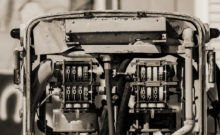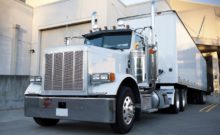The FMCSA’s mandate on ELD (electronic logging device) compliance will go into effect on December 2017. For many fleet owners, as well as independent drivers, this means transitioning away from various logging methods to avoid house of service (HOS) issues, and switching to a standard ELD. But what do truckers need to know about ELD compliance, and what staps should they take as we close in on December 2017?
ELD Compliance Is Not Arbitrary
The rule for ELD compliance is not some random rule that will eventually come down the pipeline and then disappear, like other forms of legislation. The reason for ELD compliance is to standardize the trucking industry. Manually filling out log books leaves too much room for error. Using an ELD removes not only errors, but also increases transparency and efficiency.
Fleets Should Start ELD Compliance Education
There are many drivers your there who know they have to fill out log books, but they do not necessarily understand why. Fleets should be taking this time to educate drivers on what the different numbers mean and how they are used to avoid HOS issues. Understanding the importance of logs now will drive home the need for ELD compliance as the end of the year approaches.
Is ELD Compliance Only For Select Devices?
As of December of this year, ELD compliance will be mandatory. The only exception to ELD compliance is for drivers that use automatic on-board recording devices (AOBRDs). Drivers and fleets that use AOBRDs are being given an extension until 2019 to meet the ELD compliance rule. There are devices out there which are designed to meet the FMCSA’s mandate. New ELDs reduce the need for paperwork and free up time for drivers to stay on the road, rather than being held up by filling out log books. The new ELDs also record vehicle data and make inspections go a lot faster. Additionally the recorded data, such as acceleration, braking, and driving speed, help reduce accident claims, and make processing insurance claims much more efficient than before.
Thinking Ahead With ELDs
Getting on board with ELDs is going to make things easier for drivers and fleet owners across the industry. The sooner people make the switch to ELDs, the less time and stress they will have entering information in to the devices manually, and figuring out how to use them.






